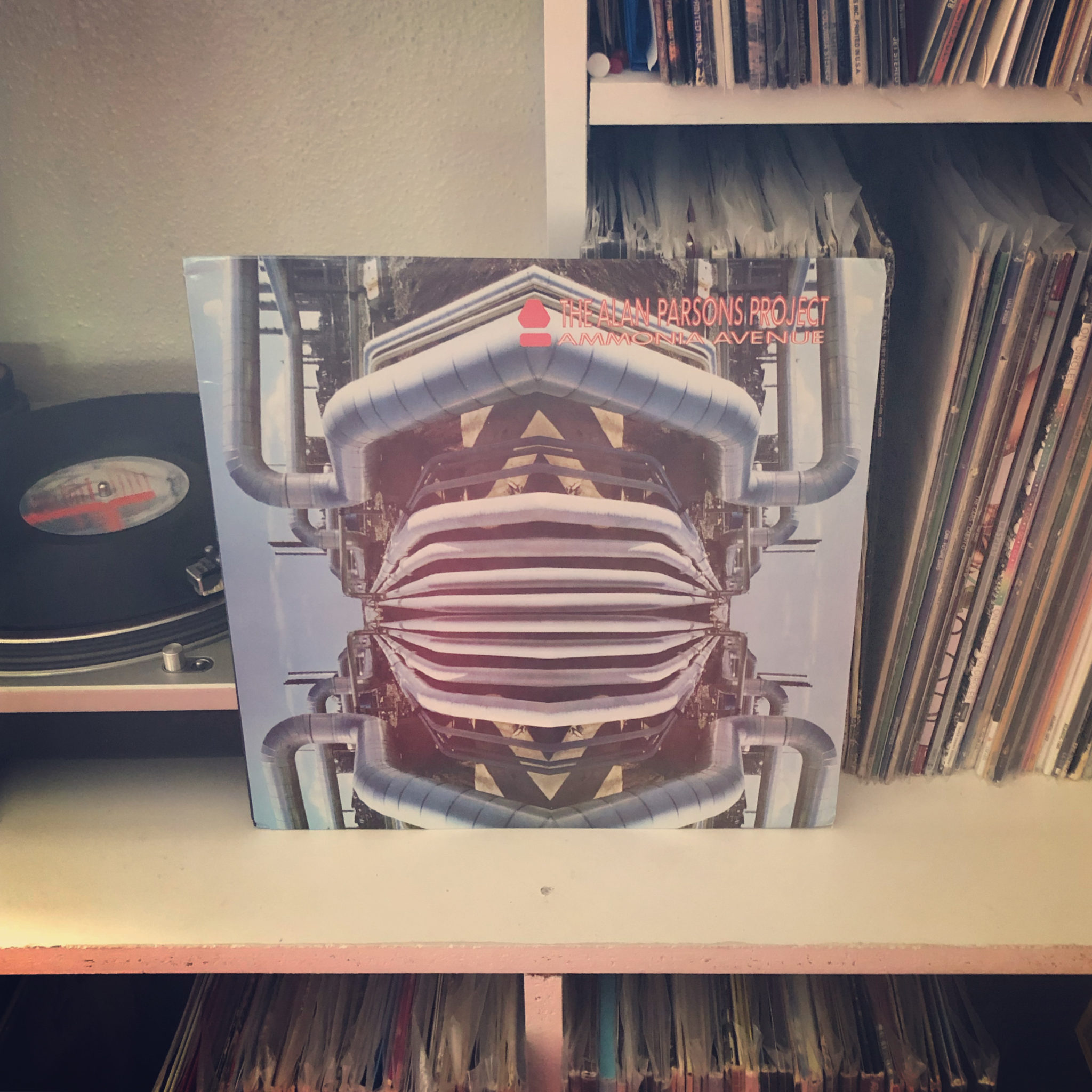
For the last decade or so, my understanding of the Alan Parsons Project’s discography was that the collective started strong with two prog rock masterpieces, had a couple uninspired albums in the middle, then had a return to form before dropping the magnificent The Eye In the Sky and hanging up the project.
But after a friend acquired several boxes of (mostly sealed) LPs and dropped them on me to take my pick of, I have since learned that they released four records after what I thought was their swan song. Ammonia Avenue, the first record after Eye, hits more than it misses, even if it’s still overshadowed by the record before it.
Ammonia Avenue is a record about the disconnect between scientific progress and communal understanding, but that concept isn’t quite as evident as in previous records. It’s also only the second Alan Parsons Project record to not open with an instrumental.
However, as great a track as “Prime Time” is, it’s hard to be disappointed by the change of format. It opens with pensive rhythms and a mournful electric line before shifting into a cheery pop song, taking on an urgent, desperate mood in the harmony-laden chorus. It’s one of the Project’s best standalone songs, and unsurprisingly was a top 40 hit.
“Prime Time” is the best song on here, but it’s hardly the redeeming track. “Let Me Go Home” is a stabbing funk rocker sung by frequent collaborator Lenny Zakatek that could go toe to toe with any 80s rock group. “One Good Reason” is a new wave banger that recalls The Police or Men at Work. “Don’t Answer Me” is a cheery track that puts a prog take on 60s doo wop—a clear homage to Phil Spector—complete with a wailing saxophone solo.
“Dancing On a Highwire” blends prog rock and pop in a masterful way, blending infectious melody lines, strong harmonies, and complex composition. “You Don’t Believe” features a wall of synths that lands somewhere between Kraftwerk and the Sonic the Hedgehog soundtrack (high praise!).
But as enjoyable as the rest of the album is, the last two tracks take it up a notch. The instrumental “Pipeline” and closer “Ammonia Avenue” are intricate and dramatic, the title track featuring a masterfully directed orchestra alongside one of Eric Woolfson’s finest vocal performances.
While Ammonia Avenue wasn’t the hit that The Eye in the Sky was, it’s far from a disappointment. While the consensus among critics seems to be that this record was the beginning of the Project’s creative downfall, that’s entirely unfair.